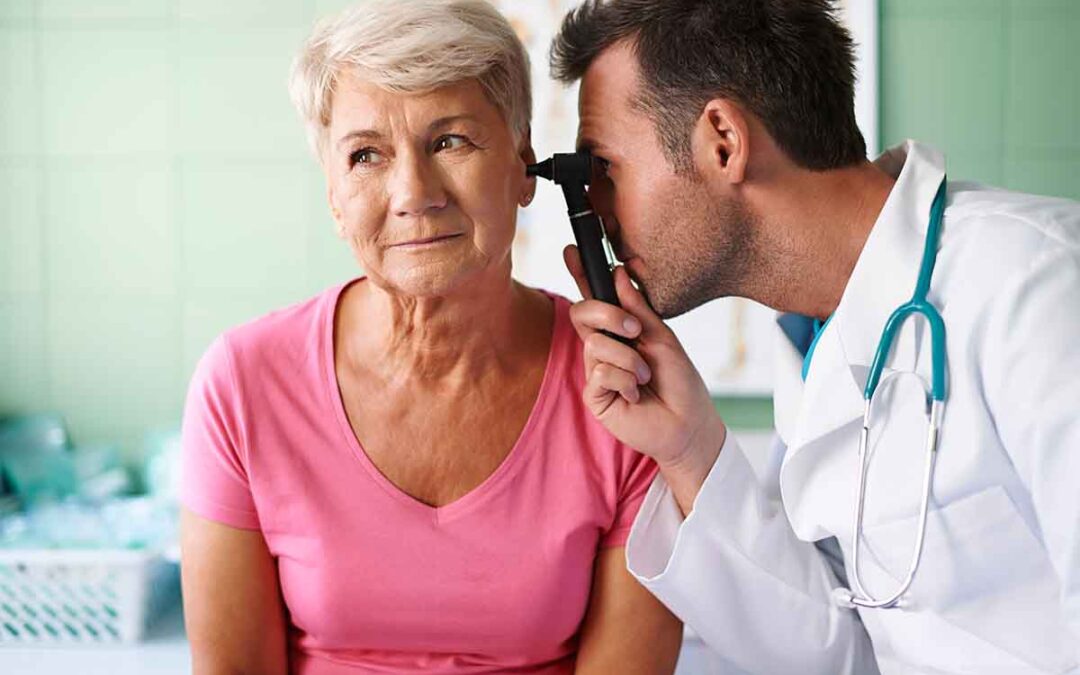Given the complexity of the human body and all the things that can go wrong with it, there’s a lot to keep track of when it comes to being proactive about looking after your health. One of these things that can go wrong is your hearing.
Around 14% of the US population has some degree of hearing loss. As may be expected, if you divide everyone into age groups, the prevalence of hearing loss only increases with age: 6% in those aged 18-44 years, 14% in those between 45-64 years, and 27% for older adults aged 65 years and above.
As hearing loss is associated with a number of daily challenges, including – but not limited to – hearing your favorite song on the radio, catching it early can go a long way to helping maintain your quality and enjoyment of life. Add to this the fact that untreated hearing loss is associated with other conditions including depression, dementia, and poor balance – writing down a hearing test on your list of things to do might be a good idea.
When should hearing be tested?
Newborns and babies
The first ever hearing screening test should happen within the first month after birth. In the US, hospitals and birthing centers typically offer this service, with most aiming to perform the test before the baby even goes home. This screening test helps to catch congenital hearing loss so the baby can then be referred onward to a pediatric audiologist for more thorough testing. Good hearing is integral for so many aspects of a child’s development, including language and social skills. Further down the track, this translates to effects on education and vocation.
The onset of hearing loss can happen at any age so, if at any point you’re concerned about your child’s milestones relating to communication, talk to a pediatrician or organize another hearing test with an audiologist.
School-aged children
Although in the US we’re pretty good at newborn hearing screening tests, many school-aged children with hearing impairment go unnoticed. This may be because the hearing loss only developed later. Children are particularly prone to ear infections, which can lead to hearing loss if not properly treated. Similar to the importance of newborn hearing tests, catching any hearing loss sooner rather than later offers the best chance at normal development, learning, and social integration.
The World Health Organization recommends hearing checks in kindergarten, then in grades 1, 2, 3, 7, and 11. However, if your child has risk factors for hearing loss, such as a family history of it, or an ear condition like recurrent infections, impacted earwax, or underdeveloped ear structures, then you may need to organize more regular hearing checks.
Adults
We’ve already discussed some of the impacts of hearing loss (like not being able to enjoy your favorite song). Despite this, and the well-documented prevalence of hearing loss especially into older age, there is no clear consensus as to how often adults should have their hearing checked. The US Preventative Service Task Force found no evidence that regular tests for adults without hearing loss symptoms were beneficial, even for those over the age of 50. On the other hand, the American Geriatrics Society suggests annual hearing checks for all adults 65 years and older. And the American Speech-Language-Hearing Association supports a hearing test every decade until you get to 50 years, after which you should be checked every three years.
Though there is no firm agreement on how often you should have routine hearing screening checks, you should definitely get checked out if you:
- Are hearing a ringing, buzzing, or clicking in your ear, which may indicate tinnitus
- Find you need to turn up the volume on the TV or radio higher than before
- Are in an occupation that exposes you to excessive noise, like a construction site or lawn mowing
- Have a known family history of hearing impairment
- Enjoy hobbies or leisure activities involving loud noise exposure, such as concerts
- Have certain medical conditions that increase your risk of hearing loss, including diabetes, chronic ear infections, and cardiovascular disease
- Realize your hearing is not as clear as it should be
If in doubt, it is better to err on the side of caution. Talk to your family doctor about your risk of hearing loss. Talk to your friends and family about whether they suspect you have hearing loss due to the volume at which you watch Netflix or how often they need to repeat themselves in conversation. Talk to your audiologist if you think your hearing was not what it once was. Doing so could improve your quality of life in so many ways.
Click to Book Your Hearing Test Today!

